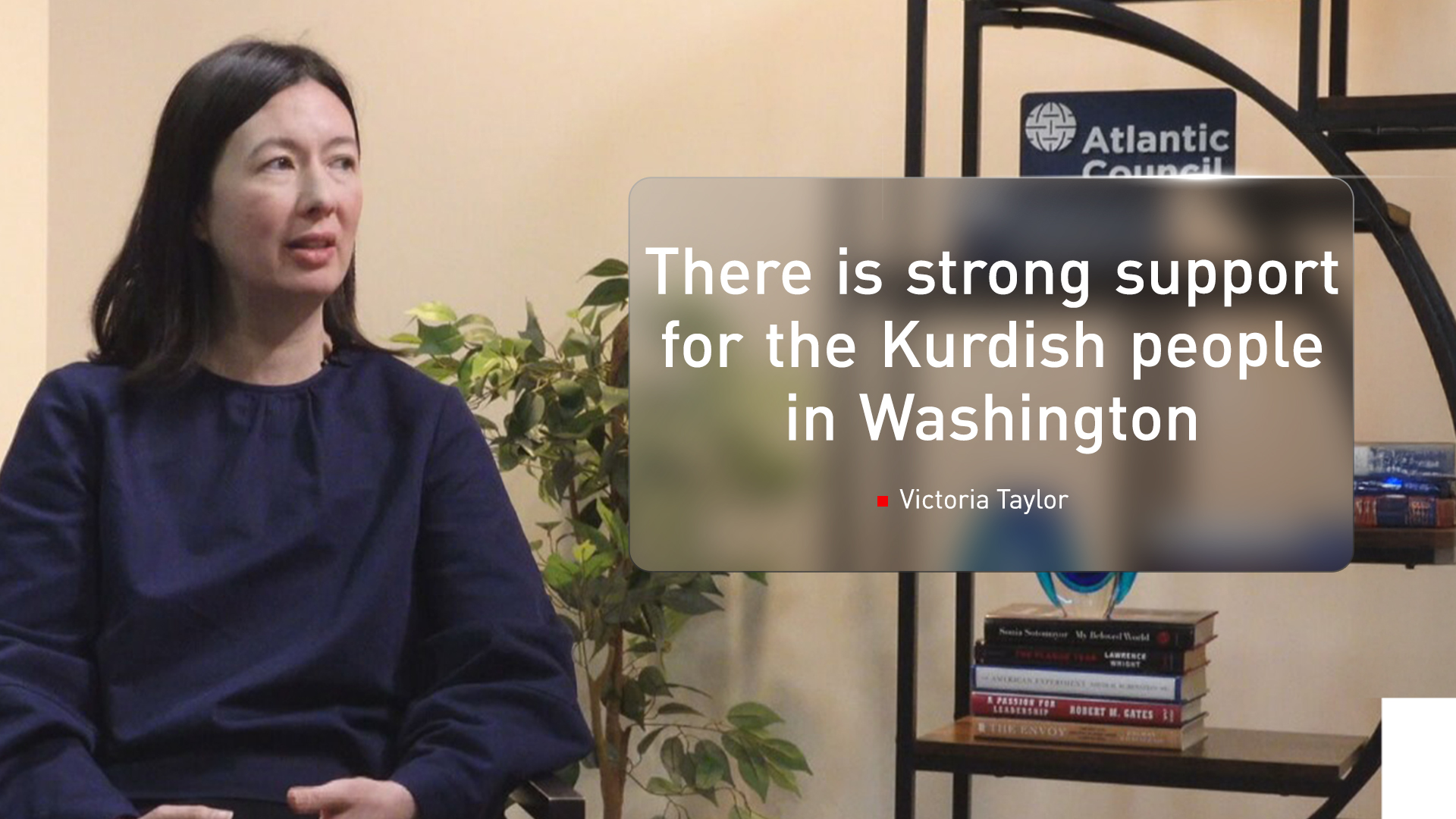Victoria Taylor Reaffirms Strong Partnership with Kurdistan Region, Calls for Stability and Investment
“The Kurdistan Region has long been a partner for the United States, and there is strong support for the Kurdish people in Washington,” she said.

ERBIL (Kurdistan24) – In an exclusive interview with Kurdistan24 on Wednesday, Victoria Taylor, former U.S. Deputy Assistant Secretary for Iraq and Iran, reaffirmed Washington’s strong support for the Kurdistan Region, describing it as a long-standing and trusted partner of the United States.
Taylor stressed that Kurdish leaders have consistently been “strong partners and effective advocates” in Baghdad, noting that Washington recognizes the shared values and close ties between the Kurdish people and the United States. She emphasized that the partnership should not be defined solely by security interests but must also expand into areas such as economic development, investment, and people-to-people ties.
“The Kurdistan Region has long been a partner for the United States, and there is strong support for the Kurdish people in Washington,” she said. “I believe stronger economic partnerships and investment between the U.S. and Iraq, including Kurdistan, will strengthen overall relations.”
Turning to recent political developments in the Kurdistan Region, Taylor addressed allegations against Lahur Sheikh Jangi Talabani, calling for a fair and transparent investigation. She emphasized that peaceful and accountable processes are essential to maintaining both public trust and international confidence. “Everyone would have preferred a calmer process, whether through a peaceful arrest or a transparent inquiry. That is what we hope to see moving forward,” she added.
On August 22, the Patriotic Union of Kurdistan forces arrested People's Front leader Lahur Sheikh Jangi and his brother, Polad Sheikh Jangi, following intense fighting at the Lalazar Hotel, which is also Sheikh Jangi's residence.
Read More: PUK Forces Arrest Lahur Sheikh Jangi and His Brother Amid Ongoing Clashes in Sulaimani
While acknowledging the broader security discussions between Baghdad and Washington regarding Operation Inherent Resolve, Taylor noted that questions remain over the mission’s conclusion in 2025, including whether some U.S. forces may be repositioned to Erbil to support future bilateral cooperation.
She also touched on ongoing budget and revenue disputes between Baghdad and Erbil, urging both sides to reach a sustainable, long-term settlement. “Almost every month, there are renewed discussions about salaries and revenue transfers. I hope there will be a sustainable, long-term solution,” she said, reiterating U.S. support for dialogue to ease tensions.
Taylor concluded by highlighting the Kurdistan Region’s progress in maintaining stability in recent years, stressing that this remains crucial for attracting investment and ensuring prosperity. “The less we see rockets, drones, or fighting in the streets, the better for Iraq’s future, stability, and prosperity,” she said, underscoring the importance of safeguarding peace in the Kurdistan Region.
The relationship between the Kurdistan Region and the United States has deep roots, shaped by decades of political, security, and humanitarian engagement. Since the 1991 Gulf War, when U.S.-led coalition forces enforced a no-fly zone to protect Kurdish civilians from Saddam Hussein’s regime, Washington has played a central role in the region’s security and political trajectory.
The establishment of the Kurdistan Regional Government (KRG) in 1992 coincided with a period of close U.S. support for Kurdish autonomy within Iraq.
Following the 2003 U.S.-led Freedom Operation of Iraq, Kurdish forces, the Peshmerga, emerged as vital American allies in stabilizing northern Iraq. This partnership deepened during the war against ISIS (2014–2017), when U.S. military support was crucial in enabling the Peshmerga to hold back and eventually defeat the extremist group alongside coalition forces.
Beyond security, however, economic cooperation has become an increasingly important pillar of bilateral ties. American companies, particularly in the oil and gas sector, have invested heavily in the Kurdistan Region, seeing it as a gateway to broader opportunities in Iraq and the Middle East.
U.S. officials, meanwhile, have repeatedly encouraged the KRG to diversify its economy beyond hydrocarbons, citing potential in areas such as agriculture, education, health, and digital technology.
The U.S. has also supported governance reforms, institution-building, and private-sector development in the Kurdistan Region, aiming to help create a stable and business-friendly environment. While political disputes between Erbil and Baghdad have occasionally complicated the investment climate, Washington has often served as a mediator, encouraging compromise and fostering long-term cooperation.
For many Kurdish leaders, strengthening ties with the U.S. represents not only an economic opportunity but also a strategic safeguard amid regional instability and shifting alliances.